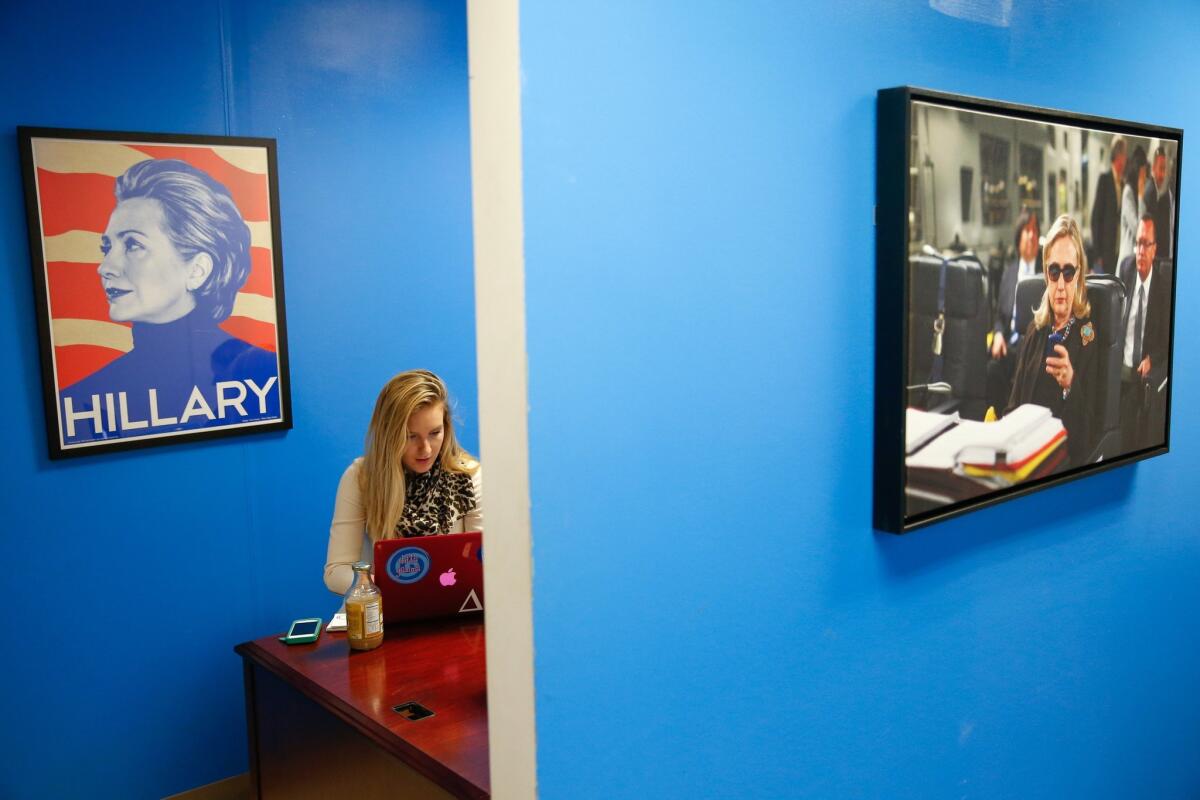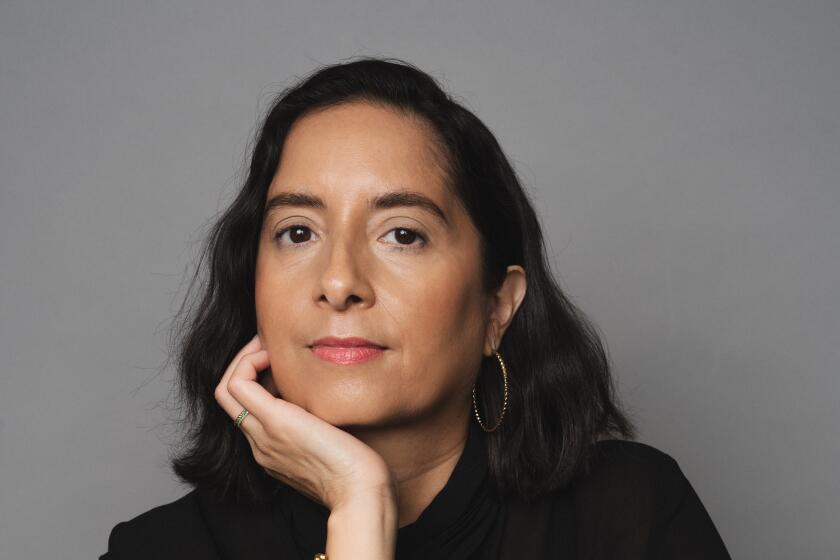Editorial: Can California rein in super PACs?

Intern Jessica Lis works at the Ready for Hillary super PAC offices in Arlington, Va. in April.
Nationally, and increasingly in California, political candidates are treating independent expenditure committees as extensions of their campaigns. Sure, on paper these so-called super PACs are separate from and independent of the candidate, which is why they’re allowed to raise unlimited amounts of money. But in practice, many candidates appear to be coordinating their efforts with super PACs by fundraising for the committee, sharing staff or campaign consultants and finding ways to telegraph their campaign strategies. The practice of using super PACs as an unregulated alter ego for the candidate’s campaign committee is making a mockery of the law.
Super PACs were made possible by the Supreme Court’s Citizens United decision and subsequent appeals court decisions that said there should be no limits on what people (or corporations or unions) may contribute to independent expenditure committees. The theory was that because the committees operate separately from the candidate, the contributions don’t pose the same risk of quid pro quo corruption. As a result of the decisions, independent committees were able to spend more than $80 million in California’s 2014 election — an eightfold increase over 2002.
Now, California’s Fair Political Practices Commission has proposed new rules that would make it harder for candidates and super PACs to coordinate with one another in state and local races.
Some of the FPPC’s proposals are sensible. Currently, candidates may solicit unlimited donations for super PACs that were formed to support their candidacies. The commission would presume such fundraising by a candidate to be an indication of coordination. Also, the proposal would presume coordination if a super PAC formed to support a candidate hires that candidate’s campaign consultant or one of the candidate’s staffers during the same election. The idea is to limit the exchange of information between candidates and independent committees by stopping the revolving door.
But some of the FPPC’s proposals may step on free-speech protections. For example, the commission would presume coordination if a candidate releases campaign talking points criticizing his opponent and those points later appear in a super PAC-funded ad. That’s a stretch. And the FPPC would presume coordination if a family member starts or funds a super PAC in support of a candidate. But just because someone is related to a candidate doesn’t mean there is coordination of campaign details and strategies.
The FPPC notes that the proposals create a presumption of coordination, not a conclusion. Anyone accused of coordinating would be allowed to present evidence to the contrary. Of course, it’s not easy to prove a negative. Regulating political spending in a post-Citizen’s United world isn’t easy either, but that doesn’t mean the FPPC shouldn’t try.
Follow the Opinion section on Twitter @latimesopinion and Facebook
More to Read
A cure for the common opinion
Get thought-provoking perspectives with our weekly newsletter.
You may occasionally receive promotional content from the Los Angeles Times.










